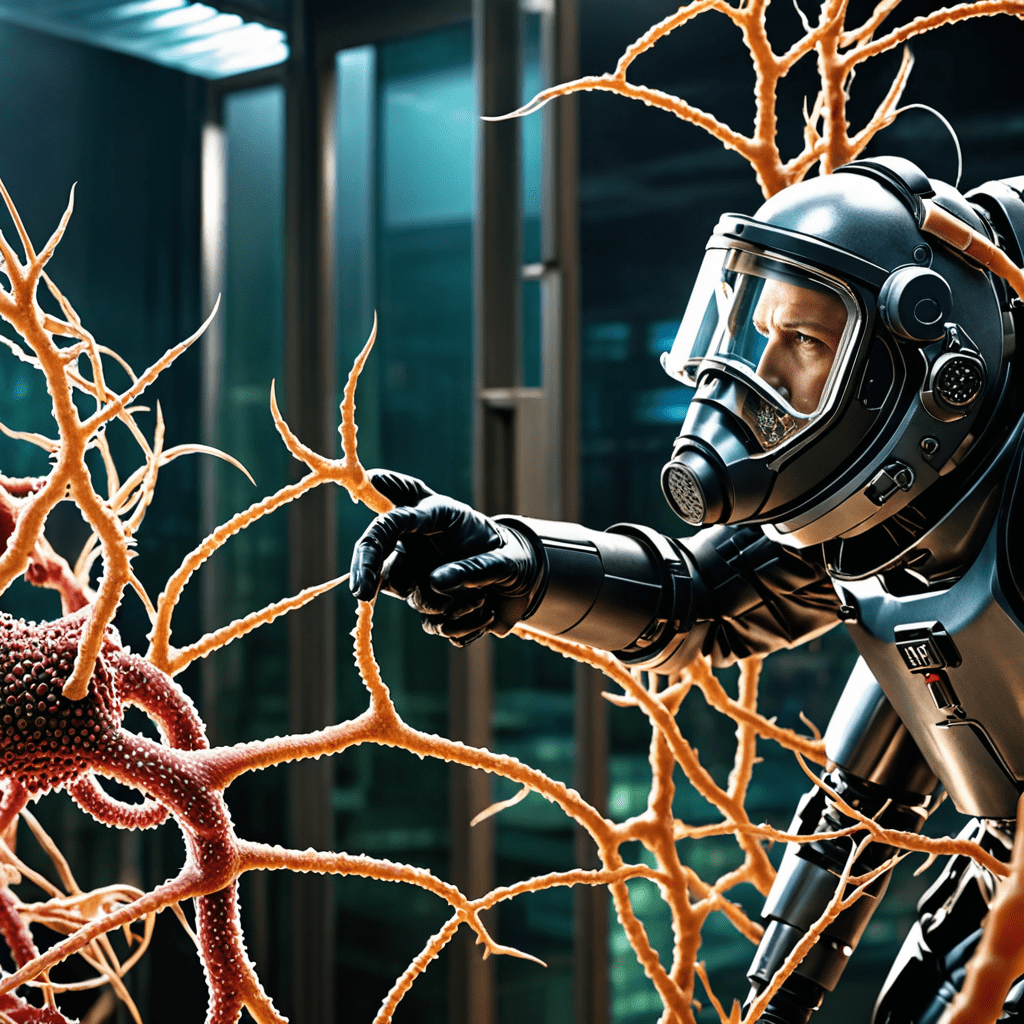Biotechnology in Cancer Treatment: Current Developments
The Impact of Biotechnology on Cancer Treatment
In the realm of cancer treatment, biotechnology has emerged as a revolutionary force, bringing forth innovative solutions that are reshaping the way we combat this widespread disease. The utilization of biotechnological tools and techniques has enabled researchers and healthcare professionals to develop targeted therapies, personalized medicine, and novel treatment modalities that hold immense promise in improving patient outcomes.
Targeted Therapies and Precision Medicine
One of the key advancements in cancer treatment facilitated by biotechnology is the development of targeted therapies. These therapies are designed to specifically target cancer cells based on their unique genetic and molecular characteristics, while sparing healthy cells. This targeted approach not only enhances treatment efficacy but also reduces the risk of adverse effects commonly associated with traditional chemotherapy.
Immunotherapy: Harnessing the Power of the Immune System
Immunotherapy has emerged as a groundbreaking approach in cancer treatment, with biotechnology playing a pivotal role in its development. By leveraging the body’s immune system to identify and eliminate cancer cells, immunotherapy has shown remarkable success in treating various types of cancer. Biotechnological advancements continue to drive the refinement of immunotherapeutic strategies, offering new hope for patients with advanced or treatment-resistant cancers.
Advances in Genomic Sequencing and Biomarker Discovery
The advent of next-generation sequencing technologies has revolutionized cancer research and treatment by enabling the comprehensive analysis of tumor genomes. This has led to the identification of specific genetic mutations and biomarkers associated with different cancer types, allowing for the development of targeted therapies tailored to individual patients. Biotechnology has been instrumental in accelerating the discovery of biomarkers that aid in early detection, prognosis, and treatment selection for cancer patients.
Gene Editing and Gene Therapy in Cancer Treatment
Gene editing technologies such as CRISPR-Cas9 have unlocked new possibilities in cancer treatment by enabling precise modifications to the genetic makeup of cancer cells. Gene therapy approaches harness these tools to introduce therapeutic genes or correct genetic mutations underlying cancer development. Biotechnological innovations in gene editing hold potential for the development of novel treatment strategies that could transform the landscape of cancer therapy in the coming years.
Nanotechnology in Drug Delivery and Theranostics
Nanotechnology has emerged as a frontier in cancer treatment, offering novel solutions for targeted drug delivery and theranostics (therapy combined with diagnostics). By engineering nanoscale particles that can precisely deliver therapeutic agents to cancer cells, biotechnology has opened up new avenues for enhancing treatment efficacy and reducing systemic toxicity. The integration of nanotechnology with biotechnological platforms is paving the way for personalized and precision cancer medicine.
The Future of Biotechnology in Cancer Treatment
As biotechnology continues to evolve and intersect with cancer research and treatment, the future holds immense promise for further advancements and breakthroughs in oncology. From innovative therapeutic modalities to personalized treatment approaches, the synergy between biotechnology and cancer treatment is poised to shape a new era in combating this complex disease. The ongoing developments in biotechnology herald a future where precision, effectiveness, and patient-centric care converge to redefine the standard of cancer treatment.
FAQs about Biotechnology in Cancer Treatment: Current Developments
What is Biotechnology in Cancer Treatment?
Biotechnology in cancer treatment refers to the use of advanced biological techniques to develop innovative therapies for combating cancer. These methods involve utilizing living organisms, cells, or their products to target and treat cancerous cells with greater precision.
How does Biotechnology Impact Cancer Treatment?
Biotechnology has revolutionized cancer treatment by allowing for the creation of targeted therapies tailored to individual patients. This personalized approach enhances treatment efficacy while minimizing side effects, leading to better outcomes for those battling cancer.
What are Some Current Developments in Biotechnology for Cancer Treatment?
Recent advancements in biotechnology for cancer treatment include the development of immunotherapies, gene editing technologies like CRISPR-Cas9, and the use of nanoparticles for drug delivery. These breakthroughs are reshaping the landscape of cancer care and offering new hope to patients.
How Can Biotechnology Enhance Traditional Cancer Treatments?
Biotechnology complements traditional cancer treatments such as chemotherapy and radiation therapy by providing targeted and more effective treatment options. By harnessing the power of biotechnology, researchers and clinicians can tackle cancer in a more precise and personalized manner, improving patient outcomes.


